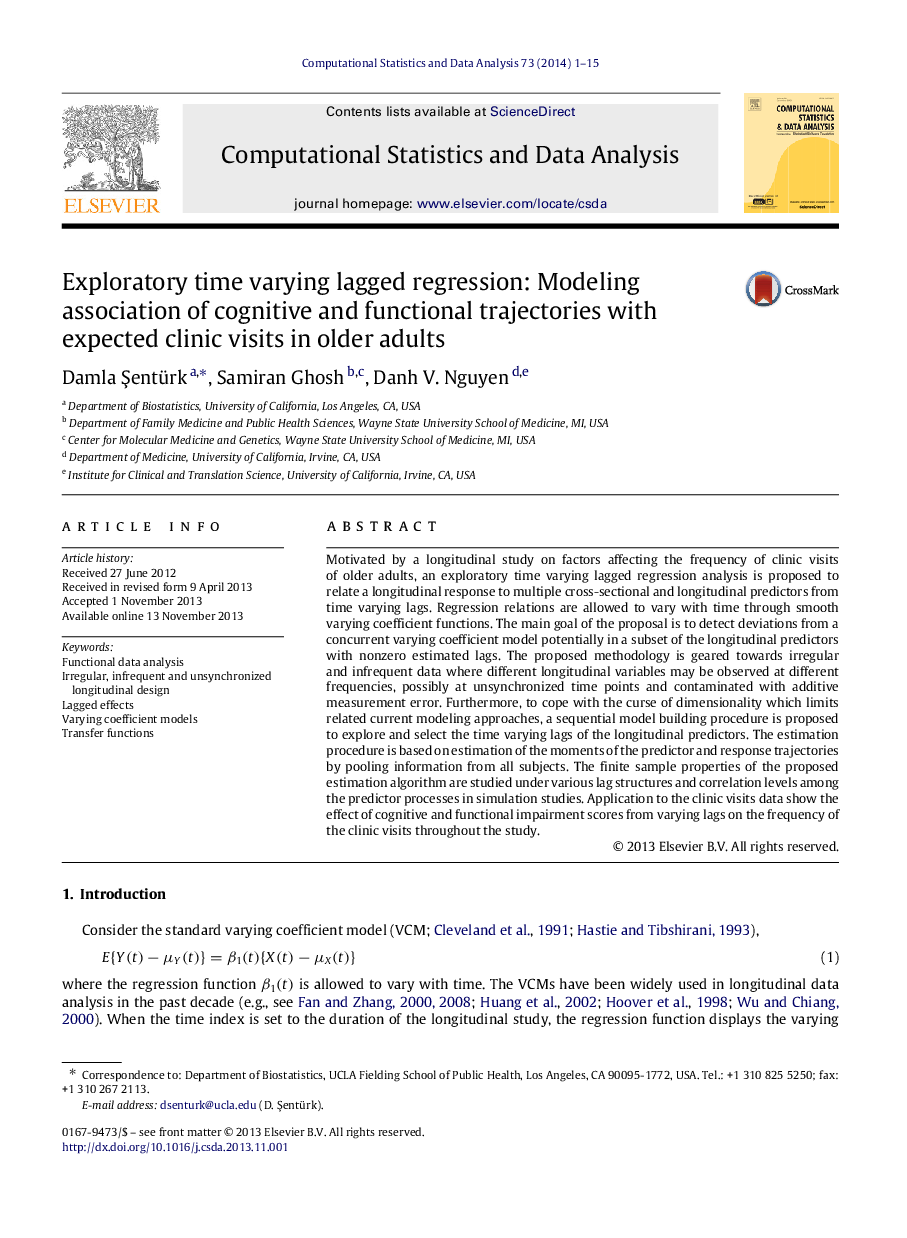| کد مقاله | کد نشریه | سال انتشار | مقاله انگلیسی | نسخه تمام متن |
|---|---|---|---|---|
| 416639 | 681389 | 2014 | 15 صفحه PDF | دانلود رایگان |
Motivated by a longitudinal study on factors affecting the frequency of clinic visits of older adults, an exploratory time varying lagged regression analysis is proposed to relate a longitudinal response to multiple cross-sectional and longitudinal predictors from time varying lags. Regression relations are allowed to vary with time through smooth varying coefficient functions. The main goal of the proposal is to detect deviations from a concurrent varying coefficient model potentially in a subset of the longitudinal predictors with nonzero estimated lags. The proposed methodology is geared towards irregular and infrequent data where different longitudinal variables may be observed at different frequencies, possibly at unsynchronized time points and contaminated with additive measurement error. Furthermore, to cope with the curse of dimensionality which limits related current modeling approaches, a sequential model building procedure is proposed to explore and select the time varying lags of the longitudinal predictors. The estimation procedure is based on estimation of the moments of the predictor and response trajectories by pooling information from all subjects. The finite sample properties of the proposed estimation algorithm are studied under various lag structures and correlation levels among the predictor processes in simulation studies. Application to the clinic visits data show the effect of cognitive and functional impairment scores from varying lags on the frequency of the clinic visits throughout the study.
Journal: Computational Statistics & Data Analysis - Volume 73, May 2014, Pages 1–15
